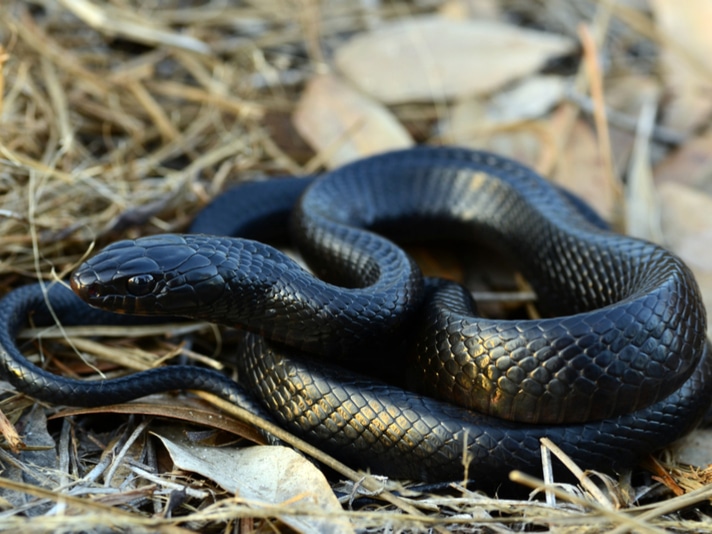The Eastern indigo hatchling found last week, and the first found in 2020, indicates the captive breeding and release efforts are having success.
The Alabama Wildlife and Freshwater Fisheries Division announced March 17 that a wild-hatched Eastern indigo snake (Drymarchon couperi) was found in the Conecuh National Forest. This is the second time a wild-born hatchling was found. The finding is the result of a captive breeding program that saw the release of captive-bred Eastern indigo snakes in the Alabama forest.
The first such hatchling was found in 2020. The wildlife and fisheries division wrote on Facebook that the finding of these hatchlings indicate the program is enjoying some success. The project to reintroduce the species in Alabama launched in 2006, with captive-bred hatchlings released in 2010. In 2017, 25 Eastern indigo snakes were released into the Conecuh National Forest. This upped the population at that time to 110 released snakes.
“The goal is to release a total of 300 snakes over the years to improve the chances of establishing a viable population,” the Alabama Wildlife and Freshwater Fisheries Division wrote on Facebook.
“During the early days of the indigo project, the released snakes were propagated from indigos that had been captured in the wild in Georgia. Partners in this project include Auburn Museum of Natural History, Auburn School of Forestry and Wildlife Sciences, U.S. Forest Service, U.S. Fish and Wildlife Service, Zoo Tampa, Zoo Atlanta, the Georgia Department of Natural Resources and the U.S. Army’s Fort Stewart, as well as the OCIC at the Central Florida Zoo, where the captive indigo breeding and health care are handled.”
The snakes, which were raised in captivity by the Central Florida Zoo’s Orianne Center for Indigo Conservation, are outfitted with transponder tags to permanently identify them.
Eastern Indigo Snake Information
Climbing A Tree To Save An Eastern Indigo Snake
Nearly 8ft Eastern Indigo Snake Photographed By Georgia Biologists
Scientists Release 25 Eastern Indigo Snakes Into Alabama Forest
The eastern indigo snake is the longest native snake in the United States, sometimes reaching more than 8 feet in length. The snake is a federally threatened species and certain restrictions are in place with regard to possessing them. A member of the Colubridae family, indigo snakes feed on a variety of animals, including small mammals, amphibians, birds, lizards, baby turtles, and venomous and non-venomous snakes.



